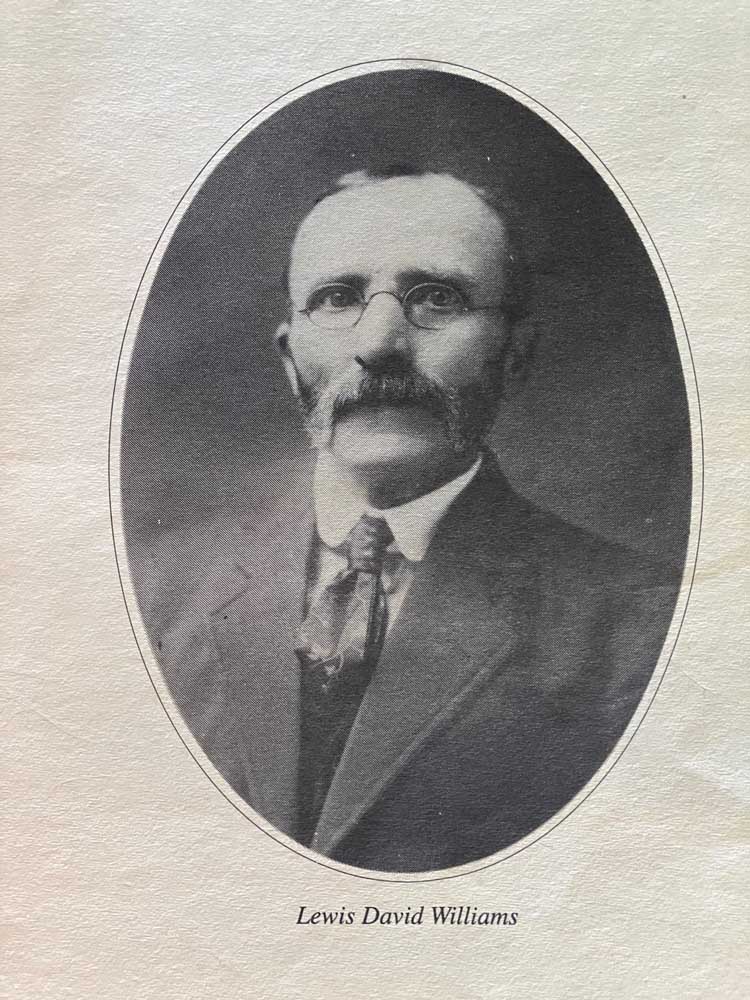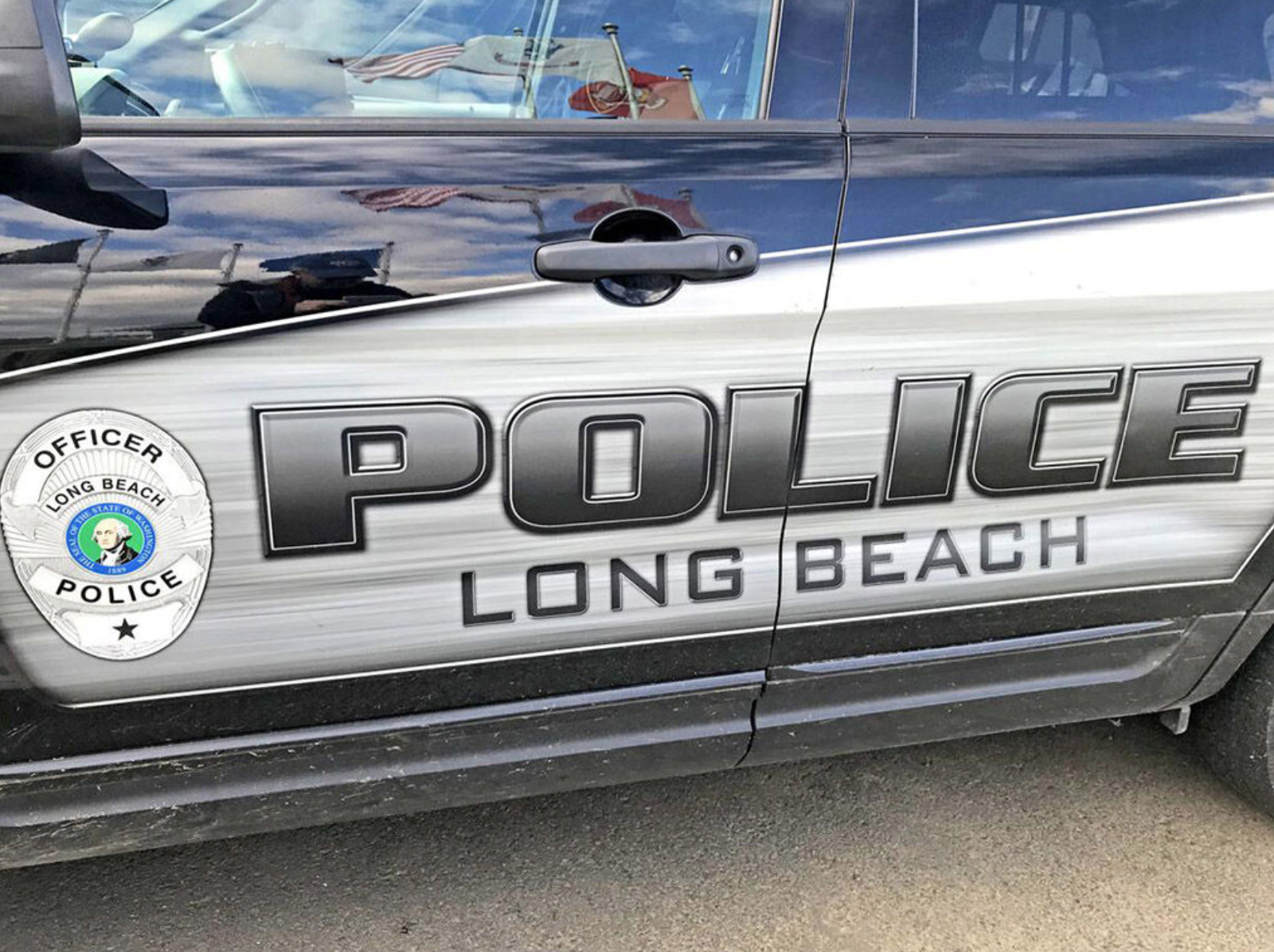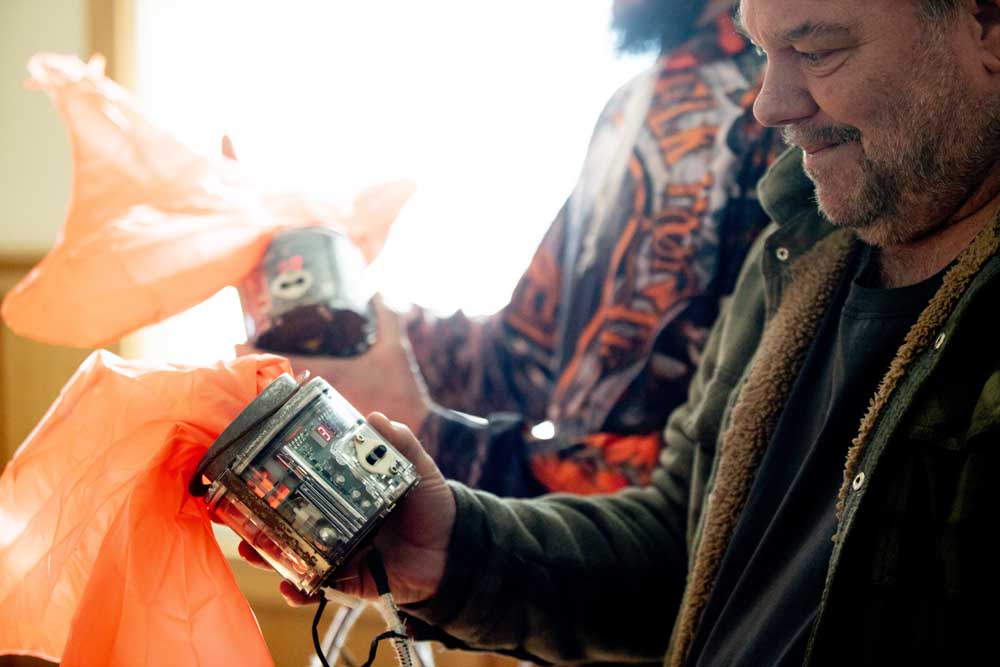Saints or Sinners? Characters of Pacific County: President or carrot grower, L.D. Williams was a good man
Published 1:16 pm Thursday, October 17, 2024

- Lewis Daniel Williams, Ilwaco storekeeper and Pacific County civic leader, circa 1935.
L.D. Williams 1853 — 1944
Lewis David Williams (always called “Grandpa“ by his family and “L.D.” by everyone else) was born in Wales and came to the United States in 1870 when he was seventeen. He spent three or four years working on a farm in New York State while he finished high school, and then followed many of his Welsh countrymen to Ohio where he was employed doing piece work in the steel rolling mills.
Continuing westward, he located in San Francisco working with the horses in the trolley barns there. His brother, Captain Rhys (Reese) wrote and asked him to come north to help him out at the hotel he had built on Lake Street in Unity (which Ilwaco was then called. It wasn’t long before L.D. met Eliza Whealdon (1854-1933), daughter of pioneers Isaac and MaryAnn Whealdon, and the young couple married in 1879. During the following years, they had five children: David Walter Williams (1880-1957); Lewis Daniel (1885-1984); Eleanor “Nell” Williams (1887-1961); Rees Brongwyn Williams (1891-1978); John “Jack” Grouille Williams (1897-1988). Their big house on Willaims Hill was the center of family and community activities for the next century and beyond.
Shortly after his marriage, L.D. left the hotel business and opened a feed store on First Street which he later expanded to include groceries and general merchandise. A sign above today’s DMV headquarters in Ilwaco reads: “L.D. Williams 1924.” In later years, his son D. Walter Williams worked with him in the store and it was D. Walter’s daughter, Virginia Williams Jones, who wrote extensively about the sort of man L.D. was: “Grandpa loved and believed in work. He ran the grocery store for 25 years, was county commissioner for 11 years, served as mayor of Ilwaco, as postmaster, and as pilot commissioner. He was a pillar in the community and a respected leader.”
Regarding his personal habits, L.D. was “set in his ways.” He arose every morning at 5 a.m., built a fire in the kitchen stove, put his rolled oats on to cook slowly, went to the back porch and put on his old lace-up high-top black shoes, slipping the laces over the eyelets, and went to his garden to hoe and pull weeds. Returning to the back porch, he’d stir up a good lather in his shaving mug and knock off his whiskers with a straight edge razor which he honed often on the leather strop hanging under his mirror. He never owned a toothbrush — would take a little salt on his index finger and rub it on his teeth. He liked three square meals a day — good plain food, He always kept a cow for the cream and milk and made his own buttermilk with Bulgarian buttermilk cultures. He went to bed at 8:30 p.m. no matter who was visiting. Occasionally, though, he would light up a cigar on a Sunday evening and play a game of 500 with family and friends.
When the Ilwaco Tribune wrote an article concerning his retirement, L.D. responded with a letter to the editor:
Confirming your notice in last week’s paper, I have retired from business after spending 26 years of the best part of my life in a country grocery store; yet looking back to 1893 when I first started in by buying John Hoffman’s feed store, better known as the cold storage, it seems like yesterday.
Since then, I have witnessed many changes in Ilwaco and vicinity. Many of the old pioneers have gone from their labors to receive their reward, and many new faces have appeared on the scene of action.
The Peninsula has wonderfully developed its resources since 1876, when cranberry land sold as low as six dollars an acre. We had only two boats, or to be exact, two trips by one boat, from Astoria per week, no railroad nor telegraph, no telephone, no public school and no church; no streets nor sidewalks. We had one small hotel built by J. L. Stout, and a post office paying about forty dollars per annum, and known as Unity, although the first post office in Ilwaco proper was known as Pacific City and was presided over by Isaac Whealdon, while the small mail bag was carried to Oysterville, the next post office, for a time by the late W. D. Whealdon, a far cry to the present time when it is carried by rail and automobile.
The Peninsula has wonderfully developed its resources since 1876, when cranberry land sold as low as six dollars an acre. We had only two boats, or to be exact, two trips by one boat, from Astoria per week, no railroad nor telegraph, no telephone, no public school and no church; no streets nor sidewalks.
John R. Goulter was county auditor and lived at the county seat, Oysterville, when I came to Ilwaco, but later on he moved here with his family and was the first possessor of the first Rambler bicycle in our town although the number of bicycles multiplied rapidly thereafter. Dr. Paul was the owner of the first Ford machine on our streets and was envied by all.
W.B. Hawkins started the first butcher shop in a little building 10 x 20 feet, and amused himself three-fourths of his time by knitting gillnets in one comer of his shop for J. 0. Hanthorn & Co. His customers averaged perhaps ten a day. R.A. Hawkins was the owner of a beautiful span of gray horses and he came wih his team and helped me clear the ground where J.A. Howerton’s fine residence now stands (then my calf pasture) for the magnificent sum of $4 per day. I well remember when uncle Dan Markham came, and soon after engaged in the fishing business, both here and at North River, and was very successful in both bays.
He built the largest and finest dwelling house so far erected in Ilwaco, and it was mysteriously burned to the ground the night before the family expected to move in. B.A. Seaborg came to Ilwaco in the summer of 1879 and selected the site for the first cannery on Bakers Bay, thereby giving the fishing business in our lower bay a great boost. A few years before salmon sold for 25 cents apiece. In 1877 the price was raised to 50 cents and everybody felt quite rich.
At this time there were no bridges over Wallicut or Chinook rivers, and no roads that were usable going in that direction. Boats were the only means of travel. During my 26 years in business, I have seen 15 grocery and feed stores go out, and others come in. Looking over my old ledgers I find the names of many who bought from me when I started in and who are still customers when I sold out to my sons, D. Walter, who has always been my right-hand man and chief reliance, and his brother Rees, for both of whom I bespeak the good will of the public.
I have been asked by my friends what I am going to do now but have not yet decided whether I will file for president or raise carrots.









